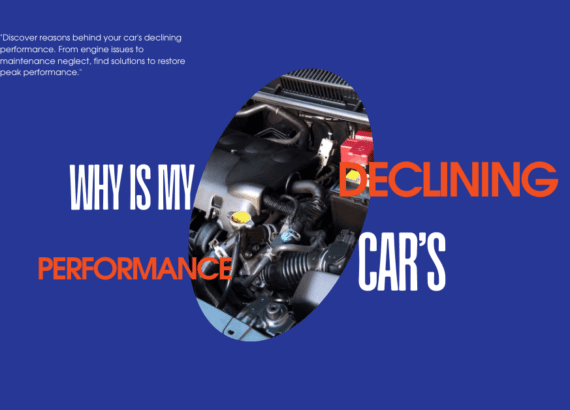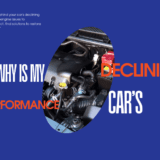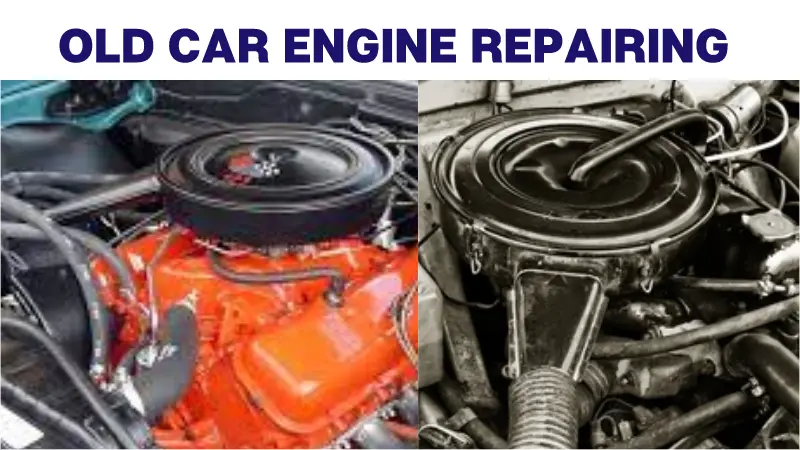Things to Know Before Buying a Diesel vehicle

When considering the purchase of a used diesel car. It’s crucial to understand that its engine operates differently compared to a gasoline engine. Utilizing diesel fuel which is thicker and can lead to a build-up of black soot if the engine combustion isn’t functioning properly. Potential buyers should look for signs of excessive soot in the vehicle’s exhaust. As it could indicate a problem that might burn a hole in their pockets .If the diesel car isn’t burning its fuel efficiently.
What Diesel vehicle Are For
In the realm of automotive choice, opting for a diesel car can feel like a significant upgrade from your standard gas-powered vehicle. Diesel-powered engines are renowned for their efficiency and longevity, traits that resonate well with my own experience in vehicle ownership. When buying your first diesel car, it’s about aligning with a lifestyle that appreciates resilience amid rising prices and values a car that’s prepared to work as hard as you do.
Whether you’re constantly carting around friends or hauling cargo, diesel engines, in my opinion, exhibit stellar performance. Especially when looking at their ability to handle added weight without a fuss. Much as I’d suggest a diesel for those with heavy-duty needs. It’s vital for potential buyers to note that maintenance is key to keeping that robust engine purring.
A used diesel car might carry the mystique of a popular choice. Yet regular check-ups are essential to ensure it remains a perfect fit for your daily demands. Preemptive care is the cornerstone of serene diesel-driving experiences, particularly if you’re transitioning from the gasoline domain.
Diesel cars are popular in certain areas for their fuel efficiency and torque. But getting your hands on one does suggest a readiness to dive into a routine of diligent maintenance—after all, your vehicle is not just a means of transport but a partner in the daily grind.
How Diesels Differ From Gas-Powered Engines

On a basic technical level, the key differences between Diesel engines and their gasoline-powered counterparts revolve around the ignition process. In a diesel engine, fuel is introduced into an environment with high compression heat, and unlike gasoline-fueled engines. There is no need for a spark plug to ignite the fuel-air mixture.
This absence of a spark to light the mixture means that diesel fuel, having a higher energy density. Will spontaneously combust under high compression. The robustness of diesel components accommodates the heightened Internal combustion pressures. Contributing to a longer lifespan for diesel engines compared to gas engines.
I recall the time spent in my uncle’s workshop, marveling at the performance of compression ignition engines—their rugged design handling the rigors of heavy-duty wear with stoic endurance. The fuel-efficient nature of these diesels differ starkly from conventional Gas-Powered Engines. Leading me to appreciate the nuanced complexities behind these powerhouse machines.
What Diesels Cost Compared To Other Vehicles
In my journey through the vehicular landscape. I’ve learned that when you’re eyeing heavy-duty diesel trucks, the price tag might initially make you balk, especially in contrast to their gas-powered alternatives.
This isn’t just about the upfront costs; it’s crucial to consider the long run. Diesel engines, with their robust components and compression ignition process. Are usually more strong and equipped to handle rigorous tasks better than a typical gasoline engine. Over the years, I’ve noticed they last longer too. Which is a point you’ll surely appreciate if you plan to sell one day; you might be surprised by how well they hold value. It’s not just about how much you pay; it’s about what you get for that payment.
Fuel Economy For Diesel vehicle
Driving a diesel car offers distinct advantages, such as better fuel efficiency and longer engine life. But it’s important to be vigilant about maintenance to prevent issues like excessive soot buildup in the exhaust—a telltale sign that the vehicle is not combusting diesel fuel effectively, which can lead to more significant problems and potentially costly repairs related to its engine.
What Maintenance Is Like For Diesels
Driving a diesel car often means robust performance and fuel efficiency, but it requires a keen eye for maintenance. Especially in terms of engine care and preventing soot buildup. Unlike gasoline engines, diesels use a thicker fuel and a different combustion process. Which can lead to a black soot issue if not properly managed. Regular checks can help ensure the vehicle doesn’t encounter problems that may lead to costly repairs, keeping the diesel engine running smoothly for longer periods.
Buying A Diesel And Working With Diesel Performance Specialist
Embarking on the journey to buy a diesel truck can be a big deal. The beginning of this adventure requires you to maintain a clear focus on your needs and budget. Finding the right vehicle that sets apart from the rest is only part of the quest. It’s essential to determine that you’re making a confident decision before signing any papers. Once you’re nearing your final choice, the true diesel work begins.
In the heart of Rocklin, there’s a sense of pride that comes with owning a sturdy diesel. Here, Diesel Performance Specialists reign supreme, and trust me, the level of diesel care they provide is incomparable.
Before you book an appointment, bear in mind that how you treat your diesel truck correctly from the start will shape its longevity and performance. Having a reliable diesel service center by your side ensures that the vehicle you’ve invested in truly deserves its place on the road alongside you.
Key Factors to Review When Buying a Diesel Vehicle
When you’re in the market for diesel used cars, understanding their starting tendencies in various conditions is essential.
Look at Exhaust
Before you drive off the lot with your diesel car, take a moment to look under the hood and, more importantly, at the exhaust itself. In my years of motor enthusiasm, I’ve learned that diesel engines, markedly different from your standard gas engine, require a keen sense of awareness when it comes to inspection.
A quick peek at the tailpipe can tell you volumes. Diesel fuel, known for being thicker than gas, often leaves a telltale sign if the engine is not burning fuel properly – a puff of black soot.
This soot is more than an aesthetic nuisance; it can be indicative of excessive build-up, signaling either a benign neglect of maintenance or an underlying problem with the engine combustion process.
If there’s an atypical amount of this residue being emitted, it suggests that the vehicle may soon require a costly intervention. Early detection of this symptom, from personal experience, can save you from the proverbial burn of repair expenses down the road.
Look into the Oil
When eyeing used diesel cars, pulling out the diesel oil dipstick can reveal much about the engine’s health— oil color can be a conspicuous indicator. Any presence of a white, milky substance hints at internal problems, such as a need for replaced gaskets or a leaking engine compartment. These are tell-tale signs of problems that should not be ignored; they suggest that water is entering areas where it shouldn’t, potentially signaling costly future repairs.
Try to Start the Car
First off, they’re notoriously bad starters in the cold since diesel fuel is thicker than regular gas. This means that in the lines of a chilly morning, you could face the classic cold start issue where the vehicle just cranks for a long time.
If you encounter this, it could hint at underlying problems. Often, it’s the glow plugs at the head of the engine that are the culprits, and having them replaced is not just expensive, but it’s also a sign that the vehicle hasn’t been warmed up properly in the past.
Look at Radiator
When I took the plunge into diesel vehicle ownership, checking the radiator engines work was advice that paid off well. Inspecting the radiator for clean lines and ensuring there’s no gunk clogging the system is essential. A peek at the coolant should reveal a consistent color without any streaks or lumpy deposits, which can indicate oil and fluid issues. If the owner maintained their vehicle with regular radiator maintenance, it would show, and you can drive with confidence knowing you’ve made a sound investment.
Exhaust Smoke
Any seasoned car enthusiast knows that exhaust smoke can tell you a lot about a vehicle’s health. When you’re running a diesel engine and you see a plume of thick, white color smoke, it’s often indicative of a problem—perhaps an off fuel/air ratio or trouble with the engine’s cylinders.
If the smoke has a light black color, typically, that’s good; it’s a normal byproduct of diesel combustion. However, if that light black becomes dense and heavy, it’s a sign that components may be worn out, and parts like cylinders might be bored or need to be replaced.
Test Drive and Handling
Before you commit to a diesel vehicle, it’s wise to take a test drive to gauge its general handling. From the moment you start the engine, pay attention to any hesitations or excessive smoke—these can be red flags.
A smooth start without any vibrations or smoke signals a well-maintained engine. On the move, assess the steering response and check for any jolts or lags in power as you stop and go; this speaks volumes about the vehicle’s overall health. Remember, the finesse with which a car handles can drastically affect your driving experience.
Conclusion
In conclusion, diesel vehicles offer a set of benefits and challenges that are distinct from their gasoline counterparts. While they are known for efficiency, longevity, and robust performance, particularly under heavy loads, potential owners must weigh these advantages against the need for diligent maintenance and the potential for higher repair costs.
Regular checks for signs like soot buildup or abnormalities in exhaust and oil are essential to prevent costly issues down the line. Going diesel means committing to a more hands-on approach to vehicle care, but for many, the trade-offs are worth the investment, given the extended lifespan and fuel economy of diesel engines.
Whether you intend to tow, travel long distances, or seek a vehicle that retains value, a diesel car can be a wise choice, provided you’re ready for the upkeep that comes with it.
FAQs
What to know before buying a diesel car?
Diesel engines generally need less frequent maintenance than gasoline-powered vehicles. But when service time comes, diesel usually costs more to repair or maintain. Be prepared for higher recurring costs, even if they come less often.
What is the downside of a diesel car?
Expensive fuel, limited gas stations with diesel. Noisier and more rugged ride than gasoline-powered engines. Produce emissions that emit carcinogens, nitrous oxides, and soot into the atmosphere. Costlier repairs and maintenance.
What first time diesel owners should know?
It becomes vital for first-time diesel owners to take a review of the engine manual. In addition to regular vehicle maintenance, diesel owners should keep a keen eye on fuel and air filter warnings. Also, consider checking engine oil changes and purge water to the engine fuel system.
What mileage is too high for a diesel car?
To be clear – avoid diesel cars with over 100,000 miles on the clock. Just avoid them. Really. They will cost you money, time and hassle.
Are short trips bad for diesel engines?
Diesel engines often require longer periods of operation to reach optimal operating temperature and efficiency. Short trips may not allow the engine to warm up fully, leading to incomplete fuel combustion, increased emissions, and potential build-up of carbon deposits in the engine and exhaust system.
Are diesel cars harder to maintain?
Diesel engines also have fewer components than gas engines, which means your car has fewer potential parts that could malfunction. Most diesel engines require fewer repair and maintenance services than gas engines, which represents an overall economic saving.











